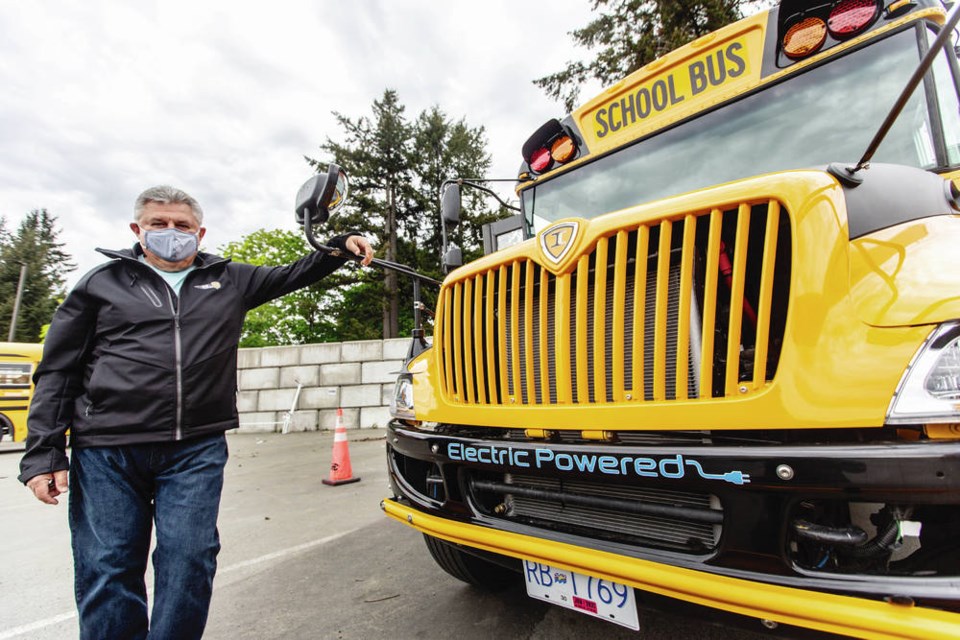The Sooke School District made its first pick-ups Monday with its new $357,500 electric bus — a first for B.C.
The driver was Al Kowalko, who was happy with the smooth, quiet ride. Kowalko, who has been driving school buses for nine years, said he doesn’t have an electric vehicle of his own, “but after driving one of these, you never know.”
“It’s got lots of power if you need it,” he said. “It’s just very neat to be a part of something that’s probably going to end up being a big part of our industry to come, that’s for sure.”
Kowalko said students have been “over the moon” about riding in an electric bus. They received cards on Monday that said: “I rode on the first electric school bus in B.C.”
The new bus can seat 76 kindergarten-Grade 4 students and 48 older students, slightly less than a diesel model. A second electric bus is scheduled to be in service by mid-month in the district, where the bus system serves more than 4,000 students.
Sooke is among 13 B.C. school districts that have bought a total of 18 electric buses expected to be in operation by the end of the school year. Others on the Island include Qualicum, Cowichan Valley, Vancouver Island West, Vancouver Island North and Nanaimo Ladysmith, which is getting two.
Sooke School Board chairman Ravi Parmar said the decision to buy a pair of electric buses was made about a year ago. The district also bought two charging stations for $50,000.
While the cost was high, the district’s share was only about 30 per cent because of grants from the province and Association of School Transportation Services of B.C., Parmar said. Both the Ministry of Education and the Ministry of Energy, Mines and Low Carbon Innovation provided funding.
“What the board valued most was obviously ensuring that we’re doing our part to fight climate change and reduce our greenhouse-gas emissions,” Parmar said.
The district fleet has about 45 buses, which includes some that are propane-powered. The goal is to move away from diesel buses, Parmar said. Diesel buses cost an average of about $150,000 each.
Victoria Electric Vehicle Association president David Grove applauded the electric school buses, saying he looks forward to the Sooke bus fleet being fully electric.
Premier John Horgan said the buses will help in B.C.’s effort to reduce greenhouse-gas emissions by 40 per cent by the year 2030.
The District of Saanich also announced steps toward electrification, with a plan to add 22 new charging stations by the fall of 2022. The charging stations are valued at $220,000, with $110,000 coming from the federal government.
Saanich’s climate plan calls for reducing emissions from municipal operations by 50 per cent from 2007 to 2025.



